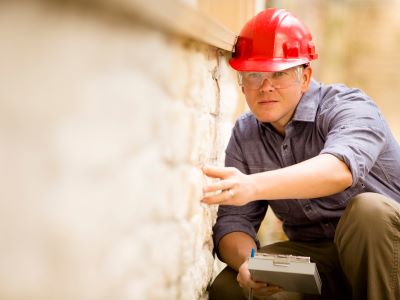All Categories
Featured
Table of Contents
Why You Should Hire A Building Inspector In Adelaide For ... in Mahogany Creek Oz 2020
Yes, we can hear your objection: "Buying a home is expensive enough as it is!
A comprehensive evaluation is a crucial action in purchasing a home, and many lending institutions will not provide funding on a house without one. Home inspections can reveal potentially deadly issues like mold or malfunctioning wiring that could trigger a significant fire. A lot of prospective buyers have a seven-day window after a home assessment to ignore the purchase.
In some situations, realtors are likewise known to consist of house evaluation provisions in agreements, such as those for a recently built home. In brand-new home construction, inspections normally cover:: Monitoring before the concrete is poured (as soon as put, there's extremely little that can be fixed).: Examining the structure and mechanics before the drywall is laid.: A complete walk-through is performed of the finished home.
Why You Need To Do A Home Inspection Before Buying in Edgewater Aus 2021

The normal inspection lasts 2 to three hours, and you must exist for the inspection to get a direct description of the inspector's findings and, if necessary, ask questions. Any problems the inspector reveals will make more sense if you see them in individual instead of relying solely on the snapshot images in the report.
While it is difficult to list everything an inspector might look for, the following home assessment list for buyers must give you a general idea of what to expect. The inspector will complete a complete inspection of the exterior of the structure. This will include climbing into any crawlspaces under the house and using a ladder to reach and check the roof and other products.
The pest inspector (yes, you might want to engage one of those too), not the home inspector, will inspect for real damage from termites, etc. The inspector will let you know which issues are cosmetic and which might be more severe. If the structure is not visible, and it usually is not, the inspector will not have the ability to examine it straight.
Building Inspection Perth in Currambine Oz 2021
The inspector will check for areas where roofing damage or bad installation could allow water to go into the home, such as loose, missing out on, or incorrectly secured shingles and cracked or harmed mastic around vents. They will also inspect the condition of the gutters. Home inspectors do not normally need to inspect specifically for termite damage, mold, asbestos, or water contamination.
The inspector will likewise complete an extensive assessment of the interior of the home. They will examine whatever from the ceiling to the cabinets under the sink. The home inspector will examine all faucets and showers, search for noticeable leakages and test the water pressure. They will also recognize the type of pipelines the house has if any pipes are visible.

The inspector will take a look at your a/c system to estimate the age of the furnace and air conditioner, figure out if they function correctly, and advise repair work or maintenance. An inspector can likewise give you an idea of the age of the home's ducting, whether it may have leakages, if your home has sufficient insulation to lessen your energy costs and whether there is any asbestos insulation.
Inspector Homes: Tauranga Residential Building Inspections in Mundijong WA 2023

The inspector will also let you understand what type of condition it is in and give you a basic idea of the number of years it has left. The inspector will sometimes check kitchen area devices that include the house to ensure they work, however these are not always part of the inspection.
The inspector will make sure the laundry room is effectively vented. A poorly preserved dryer-exhaust system can be a major fire risk. If the house has an attached garage, the inspector will make certain the wall has the appropriate fire score and hasn't been damaged in any method that would compromise its fire ranking.
The inspector will look for visible leaks, appropriately protected toilets, adequate ventilation, and other problems. If the restroom does not have a window or a ventilation fan, mold and mildew can become issues, and wetness can warp wood cabinets gradually. A home appraisal is a various action than a home evaluation, however is also often a required contingency.
7 Key Reasons To Have A Home Inspection Before You Buy in Glen Forrest WA 2022
A house inspector only evaluates the house's condition for overall security or possible difficulty spots, like a leaking roof, peeling paint, or anything not up to the regional building code. A home examination can't determine everything that may be wrong with the residential or commercial property; it only look for visual hints to issues.
Table of Contents
Latest Posts
10 Warning Signs Before Buying A House: Be A Thorough ... in Bentley Australia 2022
What To Look For In A Building Inspector in Guildford Aus 2023
7 Questions To Ask Building Inspector Before And After An ... in Bedford Australia 2020
More
Latest Posts
10 Warning Signs Before Buying A House: Be A Thorough ... in Bentley Australia 2022
What To Look For In A Building Inspector in Guildford Aus 2023
7 Questions To Ask Building Inspector Before And After An ... in Bedford Australia 2020